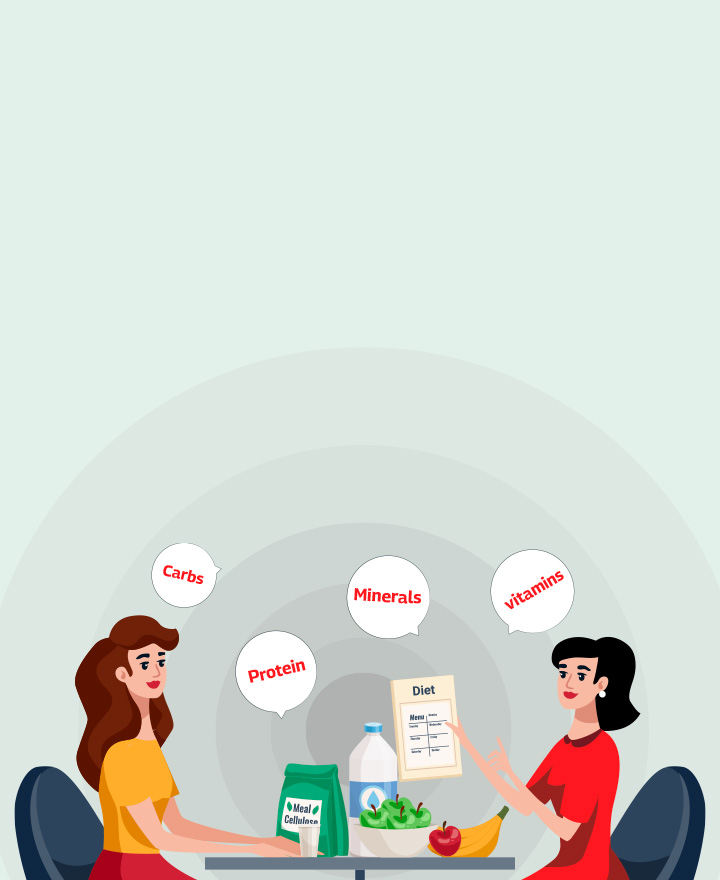

Potatoes: Nutrition & Health Benefits
Potatoes are a staple part of diets worldwide. Beyond being a comfort food favourite, potatoes are a nutritious powerhouse that contains fibre, potassium, and vitamin C. These nutrients help with digestion, heart health, and boosting the immune system. Potatoes can aid in weight management owing to their strong fibre and low-calorie content. They are a healthy option for any meal because they are naturally gluten-free and include carbohydrates that give you more energy. Read on to know more about its nutritional content & health benefits offered.
Nutrient Content in Potatoes
Potatoes are a nutritious vegetable. They are nutrient-dense and provide a variety of vitamins, minerals, and other beneficial compounds. Here’s a breakdown of their nutrient content per 100gms of raw, peeled potato:
• Calories: 77kcal approx
• Carbohydrates: Around 17grams. Potatoes are primarily composed of carbohydrates, which provide a quick and efficient energy source. The complex carbs in potatoes are a good source of dietary fibre, aiding in digestion and maintaining steady blood sugar levels.
• Protein: About 2grams
• Fat: Less than 0.2grams
• Vitamins:
- Vitamin C: Potatoes provide about 19mg of Vitamin C per 100 grams. This vitamin is important for immune function and skin health.
- Vitamin B6: approx 0.3mg per 100 grams. It is essential for brain development and function.
- Vitamin B9 (Folate): About 15mg per 100 grams. This is important for cell division and growth.
• Minerals:
- Potassium: Around 425mg per 100 grams. This is a key electrolyte that helps regulate blood pressure and muscle function.
- Magnesium: About 23mg per 100 grams. Important for muscle function and energy production.
- Phosphorus: Approx 57mg per 100 grams. Essential for bone health amd energy metabolism.
- Manganese: Around 0.1mg per 100 grams. It is necessary for antioxidant defense and metabolism.
Health Benefits of Potatoes
Here are some of the health benefits of potatoes —
• Fibre:
Potatoes contain a good amount of fibre, which keeps you full for a longer time and stops hunger cravings. This can actually aid in weight loss.
• Digestive Health:
Potatoes can improve digestive health. They contain resistant starch that acts as a probiotic and is helpful for the gut bacteria present in your stomach. This helps prevent constipation and irritable bowel syndrome (IBS).
• Antioxidants:
Potatoes have antioxidants that fight free radicals. Antioxidants also decrease the risk of cardiovascular diseases and cancer.
• Reduces Hypertension:
Potato skin contains potassium and magnesium, which balance excess sodium in the blood. Excess sodium is the primary cause of increasing blood pressure.
• Blood Sugar Control:
Contrary to popular belief, potatoes may actually help to reduce blood sugar levels.
• Gluten-free:
Potatoes are naturally gluten-free. If you have celiac disease or you have gluten sensitivity, you should include potatoes in your daily diet. They are a healthy source of nutrients in a gluten-free diet.
• Improves Brain Health:
Potatoes contain vitamin B6, which helps to improve brain health.
• Bone Health:
Potatoes contain magnesium and phosphorous that strengthen bones.
Conclusion
Potatoes are excellent additions to a balanced diet. It is important to cook your potatoes in a way that allows you to maximise their health benefits. Eating potatoes in fried forms like potato chips, french fries, and fast food options will have negative effect on your health. It is advisable to eat potatoes boiled or steamed to increase their nutritional value.
One of the important components of our overall wellness is also being financially secured. Healthcare emergencies can happen any time, but a good health insurance policy can protect you from such uncertain situations. To know more about Wellness and other health related tips, visit the wellness corner.
Source: healthline.com, webmd.com
Disclaimer: This blog provides general information and discussions about health and related subjects. The information and other content provided in this blog, website or in any linked materials are not intended and should not be considered, or used as a substitute for, medical advice, diagnosis or treatment. Kindly contact your Doctor before starting a new medicine or health regime.
Related Articles
10 Best Foods That Are High In Zinc
The Types Of Vegan Protein Sources
These Foods Can Help Control The Cholesterol In Your Diet!
Tips To Control Your Cravings While Working From Home
How To Deal With Iodine Deficiency With Help Of Iodine-Rich Foods
Published on July 16, 2024














 Health Insurance
Health Insurance  Travel Insurance
Travel Insurance  Car Insurance
Car Insurance  Cyber Insurance
Cyber Insurance  Critical Illness Insurance
Critical Illness Insurance
 Pet Insurance
Pet Insurance
 Bike/Two Wheeler Insurance
Bike/Two Wheeler Insurance  Home Insurance
Home Insurance  Third Party Vehicle Ins.
Third Party Vehicle Ins.  Tractor Insurance
Tractor Insurance  Goods Carrying Vehicle Ins.
Goods Carrying Vehicle Ins.  Passenger Carrying Vehicle Ins.
Passenger Carrying Vehicle Ins.  Compulsory Personal Accident Insurance
Compulsory Personal Accident Insurance  Travel Insurance
Travel Insurance  Rural
Rural